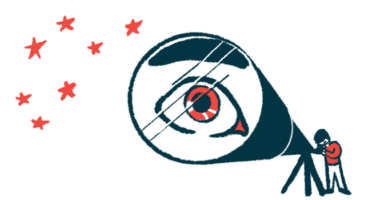Krystal Seeks FDA Approval of Vyjuvek Gene Therapy Gel for DEB

Krystal Biotech is seeking U.S. Food and Drug Administration (FDA) approval of Vyjuvek (previously called B-VEC), its topical gene therapy for people with dystrophic epidermolysis bullosa (DEB).
The request was made in the form of a biologics license application or BLA — a type of marketing approval — supported by data from two clinical trials that showed that Vyjuvek healed DEB wounds and kept them closed.
“The unmet medical need for DEB patients remains very high and our relentless pursuit of a treatment for this disease continues with the same sense of urgency that we have always had since the founding of Krystal Biotech,” Suma Krishnan, president of research and development at Krystal, said in a press release. “We look forward to working with the FDA in its review of our BLA submission.”
DEB, one of the major forms of epidermolysis bullosa, a group of rare skin disorders, is characterized by blisters that can lead to painful open wounds. Upon healing, often they leave scars.
The cause is mutations in the COL7A1 gene, which provides the instructions to produce type VII collagen (COL7), a protein key for the adhesion between the outer and middle layers of the skin.
Vyjuvek (beremagene geperpavec) is a re-dosable gene therapy gel that can be applied topically without the need for specialized expertise. It is designed for use during routine bandage changes.
The gel delivers two healthy copies of the COL7A1 gene directly to wounds, leading to the production of a working COL7 protein that boosts wound healing and prevents skin blistering.
A modified and harmless herpes simplex virus is used as the vehicle to deliver the gene copies. However, contrary to other viruses used for gene therapy, the herpes simplex virus does not integrate into a cell’s genome. This prevents the possibility of changes in the DNA that can alter normal gene activity and lead to cancer.
The gene therapy candidate was tested in the Phase 1/2 trial GEM-1 (NCT03536143), and the follow-up Phase 3 GEM-3 trial (NCT04491604).
The GEM-1 study evaluated Vyjuvek’s safety and effectiveness in nine patients — six adults and three children — with recessive dystrophic epidermolysis bullosa. This is a more severe disease form that occurs in patients who inherit two mutated gene copies, one from the mother and the other from the father. Altogether the trial involved five men and one woman, and two boys and one girl.
In each patient, a wound was treated with either Vyjuvek or a placebo gel, applied regularly for 12 weeks, or about three months.
Results showed that, with the exception of a chronic wound in the foot of one patient, all other wounds treated with Vyjuvek closed and remained healed for at least three months.
The more difficult-to-treat wound was completely healed upon re-treatment and remained closed throughout eight months of monitoring.
In contrast, wounds receiving the placebo gel healed and re-blistered at variable rates throughout the trial.
Biopsies of Vyjuvek-treated wounds confirmed the presence of the COL7 protein as early as nine days after the start of treatment. The protein was detected for at least three months in one case.
The GEM-3 trial tested the gene therapy’s safety and effectiveness in 31 patients with DEB, ages 1–44. Each person had a pair of wounds. Both were treated weekly with either Vyjuvek or a placebo, until each was closed. Vyjuvek treatment was resumed for any wounds that reopened.
At six months, 67% of Vyjuvek-treated wounds had completely healed, as compared with 22% of the wounds given the placebo gel. Complete healing was seen in 71% of the wounds treated with Vyjuvek after three months, compared with 20% of the placebo-treated wounds.
In both trials, Vyjuvek was generally safe and well-tolerated with no serious treatment-related adverse events (side effects) reported.
Krystal said it is in contact with other regulatory agencies, including those in Europe and Japan. It expects to file a marketing authorization application to the European Medicines Agency this year.







